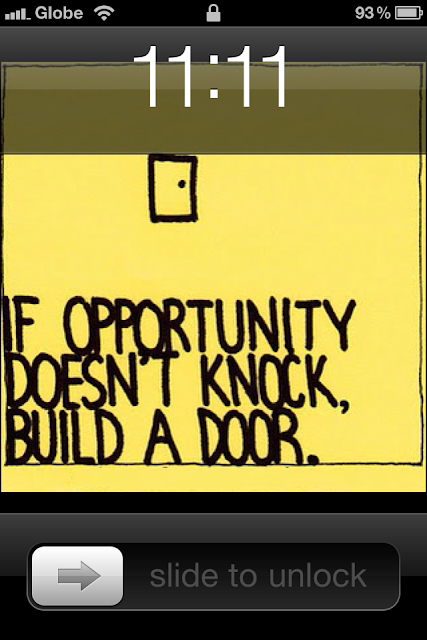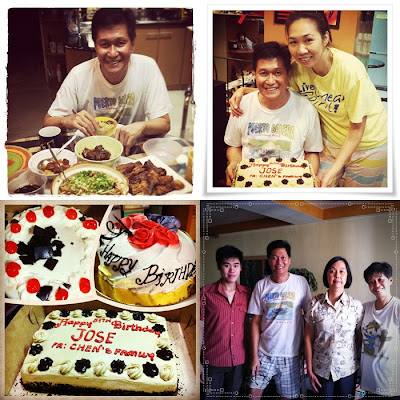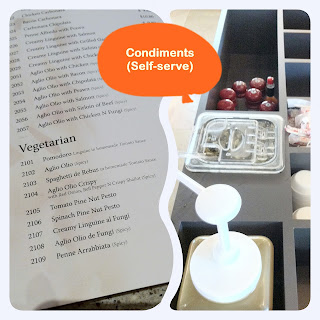As I am in the middle of organizing my files after reformatting my laptop, I found this essay I wrote for KASPIL2 (Kasaysayan ng Pilipinas, or in English, History of the Philippines) when I was an undergraduate student in college. I scanned through it and thought despite that it was written on November 29, 2008, the topic is still quite relevant to date. So here I’m sharing it to the public:
Introduction
It seems that the continuing economic tragedy of the Philippines has long been scripted, similar to an actor’s script in a setting. One of the major causes of the country’s economic haywire is the death of our basic industries which were allowed by previous government administrations to expire like the dinosaurs decades back.
Naysayers say that it’s too late for the Philippines to be industrially self-sufficient with the large amount of debt the country owes to the World Bank. But with a positive mind and a good set of leaders who have a good vision, who can rule the country and utilize its remaining “diamonds,” invest in them and dig them out of the mud, we can remain to be hopeful citizens striving for economic growth and stability. And nationalism can just be the answer.
According to Alejandro Lichauco, the reason why some countries excel and became wealthy is because of nationalism. Before anything else, what is nationalism?
Nationalism Defined
Nationalism, the foundation of one’s citizenship, can be traced down to the sense of patriotism, belonging and loyalty. It could manifest one’s actions, beliefs and values that form a collective behavior. These characteristics could build a foundation and identification of a certain citizenry.
Patronizing our own products is one of the real essences of being a nationalist. But in these modern times, Juan de la Cruz is facing neocolonialism, supporting and using products of foreign countries all over.
Through the years, the Philippines has been accustomed to depend on other powerful states like the United States of America and neighboring countries for goods/products consumption. In the same breath, the Filipinos have always embraced the technology brought by the Western world and other progressing Asian nations. For instance, we cannot even produce a decent hammer or a simple machine like the needle. Instead, we need to import these small things from China. Looking at the big picture, the main root of the country’s dependency to the Western countries and other Asian countries is free trade.
From Free Trade, Anti-Industrialization, to Growing Debts
As an agricultural state less dependent on industry, the Philippines exports raw materials to foreign countries. In exchange, from these materials, foreign countries which are heavily industrialized, manufacture goods and trade them back to the Philippines with no tariff (free trade). Imported products then penetrate the local market, and “non-nationalistic” Filipinos openly give in to foreign goods’ good quality and cheaper costs. Our poor country local market, hence, suffers.
Given this scenario, the Philippines should limit the import of foreign products in order to protect its national economy—or better yet, should produce/manufacture its own products and industrialize.
But industrialization seems to be not included in the vocabulary of most Philippine government officials from the past. Throughout history, every time a patriotic economic policy supposed to boost both our industrial and rural development would be launched, our national leaders agree to foreign demands to dilute the policy with measures to weaken and finally destroy the idea of industrialization. Mostly attended by corruption, they would rather let the Philippine industries die.
In addition, unfortunately for the Philippines and a lot of other similarly situated poor countries and former colonies, we have very little “comparative advantage” as the country was not allowed to develop products and industrialize by colonizers. As a result, we ended up being completely sold on the free market and the global free trade.
Tracing History (as discussed in class)
In 1945 to 1946, when the country was going to become independent from the USA and needed aid to rebuild our country from the devastation of the World War II, America’s officials made war damage payments conditional. This implied that the Philippine Republic first had to agree that we would continue the colonial terms of free trade. In order to receive their assistance, our industries were slowly put down and slowly until we became mere packagers for the US principals.
In the 50s to the 60s, the Philippines finally had a policy to develop import-substitution industrialization which helped improve the country’s growth. The Philippines then became second to Japan. But in the second decade of the import-substitution industrial policy, President Macapagal needed to borrow 300 million dollars from the International Monetary Fund because we had large foreign debts.
We had debts partly because of our industrialization: machinery and machine parts imports, oil, some raw materials from the USA and other countries. We would not have to import so much if we had developed our steel industry and machine-making skills and capabilities. After all, we were one of the world’s largest suppliers of iron, copper and nickel among others.
Another reason for the foreign debts was the Filipino upper classes loved importing foreign luxury products. The locally-made soaps and mirrors were not good enough for them.
At that time, the IMF would only give President Macapagal the 300 million dollars loan if he devalued the peso from P2=$1—to P3.50=$1. Because he was made to believe that the Philippines would make more money by selling more of our cheaper exports, and the result was a big mess.
Since then, the mess had stayed with us. From then on, the Philippines had to be paying more for the country’s machinery and raw material imports. But in return, the country got less money for cheaper raw-material and mining exports to the USA, Japan and other rich countries. The promise that we would earn more by devaluing the peso did not happen.
Macapagal, to solve the problem, took a step that made our economic policies more irrational, incoherent, desperate, confused and self-destructive: he imposed currency controls.
When the Philippines moved to a policy of export-oriented industrialization and then labor-intensive export industrialization, we continued to face external debt problems. Then, every time we had to be rescued by the IMF, more and more of our industries died because we implemented more and more of the measures demanded from us that sapped our strength and our wealth.
Meanwhile, the other countries in our region became richer—with their governments adopting the correct economic policies that stressed manufacturing for export and increasing their farming sector productivity. Their masses of poor people became a little bit more prosperous year by year than their Filipino counterparts.
It is just wrong for our economic policy-makers to take the liberalization and anti-patriotic economic ideology more seriously than the USA. Even the USA protects its industries, but we also should nurture our own.
Our policy up to now is to be open and liberal even to those countries that do not match our generosity. Our tariff regime for the whole world is the same as the generous one that we have our fellow ASEAN members. ASEAN is building a common market and hoping to form an economic union, so it’s normal and okay to have a generous tariff policy amongst ourselves within other ASEAN members. But why grant those same concessions to everybody—even to those who don’t give us reciprocal considerations? The answer is that we are always desperately in need of pleasing the whole world in hopes of getting something in return—that we never get.
Following Others’ Footsteps
Francois Quesnay, a French economist of the Physiocratic school, believes that agriculture is the main source of nation’s wealth and therefore must be prioritized. In addition, the physiocrats believed that the abundance and progress of one’s state comes from the land. The Philippines is rich in natural resources as much as agricultural lands. Then again, it is not yet the end for Filipinos to embrace the world of industrialization.
Take for instance Japan which embraced the industry than agriculture. Japan followed the mercantilism philosophy wherein it protected the local market from the abusive foreign investors and made a rule to import little and at the same time to export as much as possible. This is how Japan made itself an industrialized country and now one of the richest nations in the world which belongs to the Group of Eight elite states.
Another is Germany, one of European countries that was an agrarian state before. This nation was transformed from an agricultural into industrialized state with the help of Friedrich List and Otto van Bismarck who provided the mercantilism principle and applied the Nationalist Economics respectively.
If Only’s
If the Philippines would only follow the footsteps of Japan like what Taiwan and South Korea did when they adhered to the mercantilism principle, we would not be facing much economic instability in the present. These nations made the world astonished on their economic performance. Taiwan and South Korea are the “New Japans” of the world today. They were able to succeed even though they were really lacking on natural resources. In these present times, they can produce their own engines, machines and build up a steel industry.
Also, if Filipinos would only continue to appreciate and follow the late President Carlos P. Garcia’s “Filipino First Policy” until this time, the country would be competent enough and able to produce its own technologies. In Garcia’s time, Filipinos patronized the local markets and even attempted to build up a steel industry and other business enterprises which were the joint project of the government and the Jacinto Steel Incorporated. If all the presidents of the Philippines would be like Carlos P. Garcia, then all have a sense of nationalism.
Conclusion
Filipinos should put aside our bickering and differences caused by destructive foreign manipulation, foster national solidarity, make sacrifices, be bold, and be kind to one another, resolutely and vigorously move as one people, and most importantly, love our country, to build a strong and sovereign nation founded on a strong industrialized national economy.
To conclude, following Lichauco’s principles and masterpiece of nationalistic thoughts, nationalism (powered by industrialization) is the alternative solution that can ultimately and satisfactorily solve the present centuries-old social, political and economic problems rooted in our abused colonial past, save our country, and attain national greatness the Filipino people deserve.


















